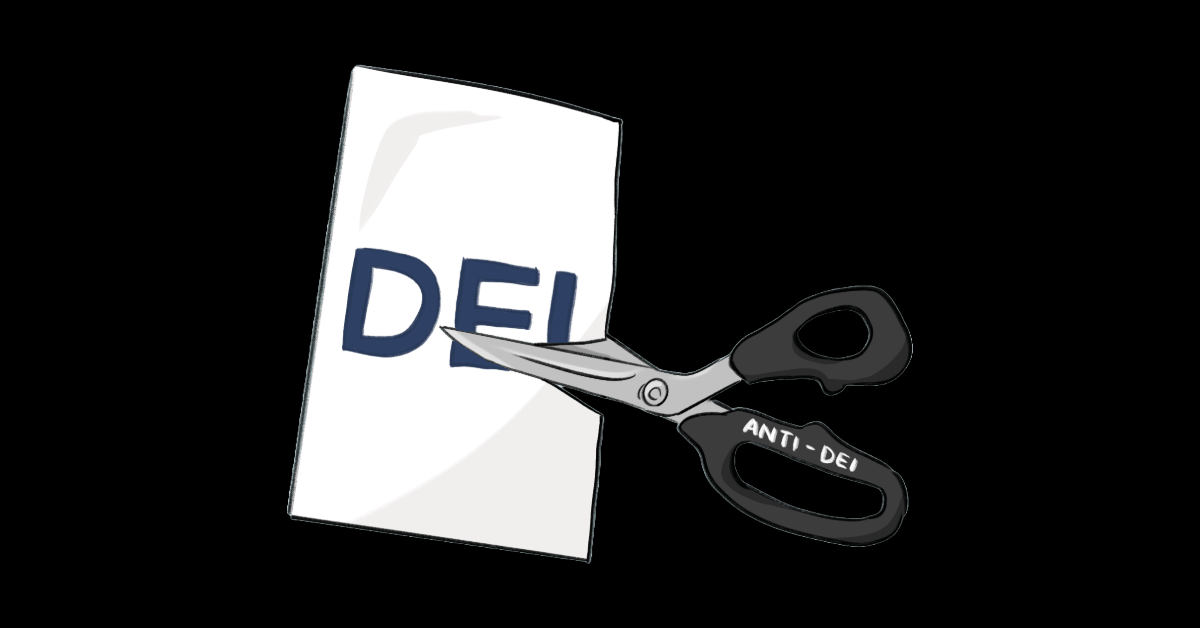
Remember 2020? The black squares, the solemn LinkedIn posts, the sudden rush of corporations discovering racism for what seemed like the first time.
For a brief, highly Instagrammable moment, DEI (diversity, equity, and inclusion) became the corporate cause du jour. Brands promised to listen, learn, diversify, and do better. Some even hired Chief Diversity Officers and put out glossy PDFs detailing five-year equity plans.
But things are looking very different on the diversity front these days.
As political pressure against DEI intensifies, spurred by the Trump administration’s executive orders and conservative pundits waging war on anything that smells remotely “woke,” many of those same brands are quietly backpedlaling. Not with grand statements or formal reversals, of course. That would require actual accountability. Instead, they’re scrubbing their websites, rewording their values, and replacing “equity” with safer, more beige terms like “belonging.” (ew)
We see you, WPP. And IPG. And IBM… And UnitedHealth Group. And Victoria’s Secret. And Paramount. And Warner Bros. And Goldman Sachs. The list goes on. According to a Forbes report, it’s not just one or two rogue players. It’s a full-on corporate exodus.
This isn’t a rebrand. It’s a retreat.
(disclaimer: all facts here are according to website captures from the Wayback Machine reviewed by Marketing Brew.)
Let’s start with WPP. The global advertising giant quietly removed a paragraph from its “Belonging” page that once championed “a workforce that reflects the diverse communities we serve” and a commitment to “actively promoting gender balance and racial equity.” Now? Poof. Gone.
IPG followed suit. IBM cited “inherent tensions” in DEI policies. UnitedHealth swapped “inclusion” for “belonging.” A spokesperson told TechCrunch it was “complying with existing and emerging laws” — which is a fancy way of saying “we don’t want to get sued.”
So, what changed?
The political climate, for one. Obviously… Trump’s administration has been actively dismantling DEI frameworks through executive orders and pressure campaigns. Companies are facing lawsuits and online harassment just for employing equity-minded language. Fear of litigation has taken the place of moral obligation.
The word “belonging” is doing a lot of heavy lifting these days. It sounds soft. Cosy. Who wouldn’t want to belong? But here’s the thing: belonging doesn’t challenge systems. It doesn’t ask companies to examine their hiring practices or leadership structures. It doesn’t require transparency or measurable outcomes.
It’s the corporate equivalent of “good vibes only.” “Belonging” allows brands to gesture vaguely at inclusion without making anyone in power uncomfortable. But DEI was never supposed to be comfortable. That’s the whole freaking point.
Unfortunately, allyship was only easy when it was trendy.
For many companies, DEI was always more marketing strategy than mission. It looked good on a billboard. It earned claps on social. But when the cameras turned off and the comment sections got scary, it turned out those values didn’t run very deep. Because be so for real: you can’t claim to care about equity if your first move under pressure is to delete the page.
And sure, some of these companies will say they still support diversity in spirit, just not in so many words. But intentions don’t drive change. Structure does. Budget does. Leadership does. Job descriptions and hiring goals and pay transparency do. Otherwise, you’re just selling progress as a vibe.
So, what now?
DEI isn’t about checking boxes or dodging lawsuits. It’s about building better, more equitable systems on purpose (even when it’s politically inconvenient). If your values only show up when it’s easy, they’re not values. They’re PR. And that’s icky.
This isn’t about being “woke.” It’s about being honest. Being accountable. Being consistent. And if that makes your legal team squirm, maybe the problem isn’t the language. Maybe it’s the system you’re trying to protect. DEI isn’t dead. But corporate courage? On life support. Yikes.
-Sophie, Writer
Not going viral yet?
We get it. Creating content that does numbers is harder than it looks. But doing those big numbers is the fastest way to grow your brand. So if you’re tired of throwing sh*t at the wall and seeing what sticks, you’re in luck. Because making our clients go viral is kinda what we do every single day.
